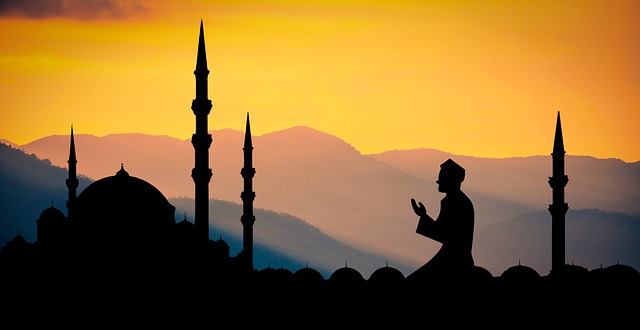Ramadan is the ninth and holiest month of the Islamic lunar calendar where more than a billion Muslims worldwide fast from the early morning until sunset. Here’s how you can celebrate.
Why is Ramadan celebrated?
Ramadan is the month when the first verses of the Quaran were said to be revealed to the prophet Muhammad in 610 CE. Laylat al-Qadr, or Night of Power, is thought to be the actual day when the Quran was given to the prophet and usually falls within the last 10 days of the holiday. During Ramadan, it is believed that the gates of heaven are opened and the gates of hell are closed.
But why fast?
By removing the daily pleasures of food and drink, Muslims can better focus the mind on prayer, spirituality, and purification of the mind and body. However, Ramadan is not just about fasting and prayer. Charity is also important during the month. Islam in general requires Muslims to give to charity throughout the year as the Zakat, or alms-giving, is one of the Five Pillars of Islam. However, during Ramadan, many Muslims will give more. Ramadan is also a chance to become closer to God and to spend time with family. It is a month of peace and harmony, so Muslims are expected to avoid jealously, anger, and negative thoughts towards others.
Who fasts?
All Muslims fast during Ramadan unless they are ill, pregnant, diabetic, breastfeeding, traveling, or if they are very young or very old. If a Muslim cannot complete fasting during Ramadan for another reason, they must still complete the fast when they are able to do so at another time. Although children do not have to fast, some do for part of the month in preparation for later in life.
When does Ramadan start?
This year, the first day of the month of Ramadan is on Thursday May 17th. The beginning of Ramadan is when you can see a new moon. Because of this, the actual date when Ramadan begins can move as many as 11 or 12 days each year. And can vary from place to place because of weather conditions and difficulty in seeing the moon. With better technology, observatories, and more accurate astronomical calculations, the start date of Ramadan is becoming more and more consistent each year. For example, Saudi Arabia uses special infrared cameras to see the moon if it is not visible to normal telescopes to give time to prepare for the first day of Ramadan.
How does Ramadan effect daily life?
In countries where Muslims are the majority, Ramadan changes daily life. In Egypt, the clocks are pushed back to shorten the days and increase the night. So fasting does not feel as long. Work days are often shortened to allow for additional prayer time each day. Also to enjoy the festive meals at the end of the daily fast.
In Muslim countries, the price of food and clothing also goes up as people spend more money on these items. For example, a cup of tea can cost six times its normal price.
What happens at the end of Ramadan?
At the end of Ramadan is a large festival called Eid ul Fitr. The celebrations start as soon as the new moon is seen in the sky. During Eid, Muslims celebrate by:
- Wearing their finest clothing
- Going to large processions
- Giving gifts
- Having large meals during the day
- Spending time with their family and friends.
Muslims also give to charity so that the poor can celebrate the end of Ramadan. Eid is also a time of prayer, where Muslims praise Allah for helping them get through the month whilst asking for forgiveness of their sins.
What can non-Muslims do?
- Non-Muslims visiting Muslim countries are not expected to fast. But it is respectful to avoid eating and drinking in public spaces.
- If you see a Muslim reciting passages from the Quaran, whispering prayers, or performing ablution (the washing of the body), please be respectful of these deeply spiritual and holy traditions.
To wish a Muslim a happy Ramadan, you can say Ramadan Mubarak! Which means “have a blessed Ramadan”. We wish you a happy Ramadan!
Written by Florianne H.




